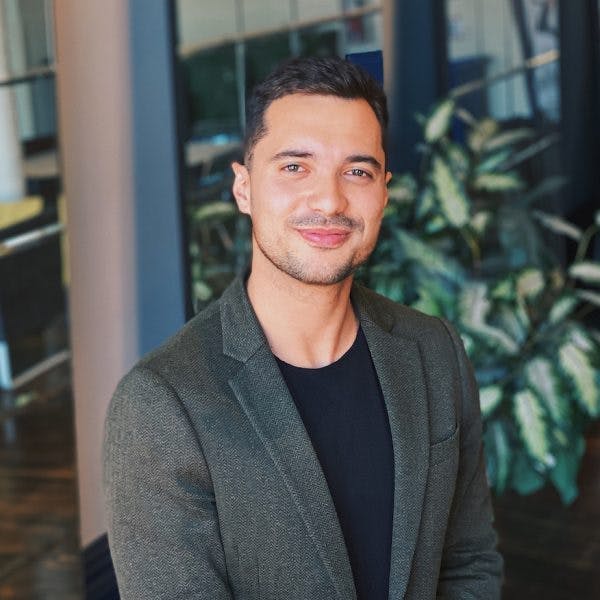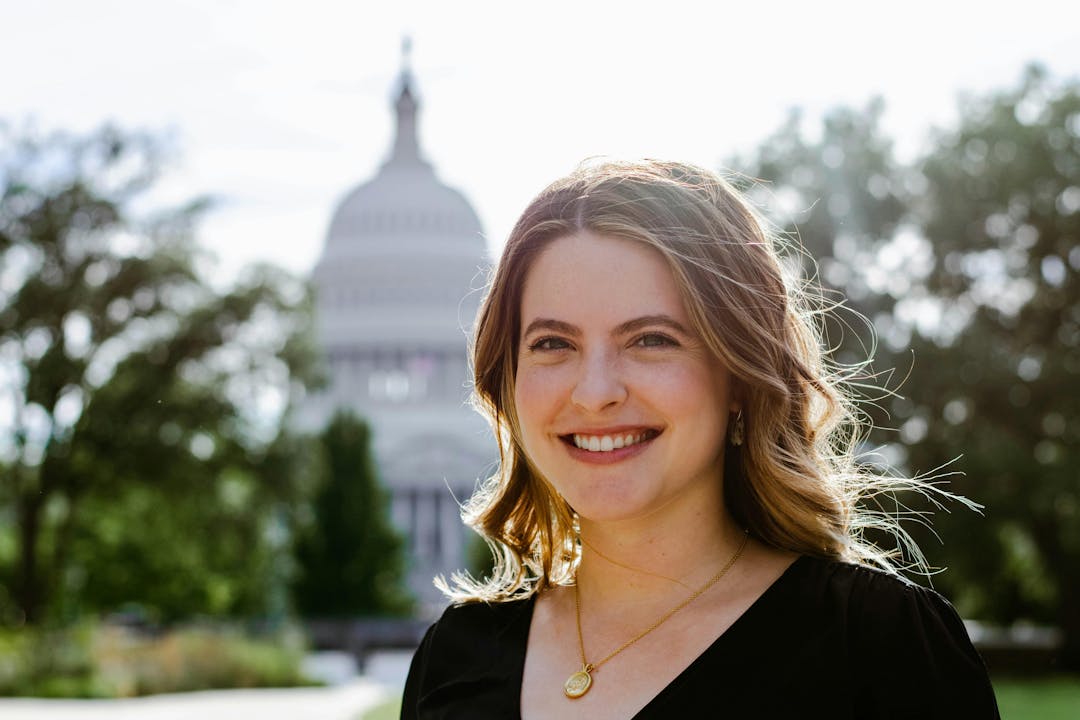How to Use Social Media as a Vehicle for Accurate Health Information
Social media isn’t all bad
Social media is usually seen as the antithesis of mental health. The data backs it up: social media usage correlates with mental health concerns, anxiety, depression, stress, self-injurious behavior, and suicidality in young people.1
But, as the kids will tell you, social media has its benefits. When used strategically, it can increase feelings of connectedness and educate users about mental health.2, 3 If used mindfully (i.e. no pesky feelings of disappointment or FOMO) it can improve mental health and social wellbeing.4
Because of its proliferation in our lives, US health experts have begun using social media as a health promotion strategy.5
Does social media have a role in our health and wellbeing if it also puts us at risk of negative emotional outcomes?
Behavioral Science, Democratized
We make 35,000 decisions each day, often in environments that aren’t conducive to making sound choices.
At TDL, we work with organizations in the public and private sectors—from new startups, to governments, to established players like the Gates Foundation—to debias decision-making and create better outcomes for everyone.
What kind of content proliferates on social media?
We’ve historically ignored social media as a serious tool for healthcare information - and it’s largely due to the type of content that does flourish online.
Misinformation spreads fast
In one study on Facebook, over 60% of participants accepted claims of misinformation, while only 16% were able to refute the information based on experience or knowledge.6 Misinformation is such a concern that in 2021, the US Surgeon General called it the greatest threat to COVID-19 vaccination efforts.7
Emotional content goes viral
Content that evokes positive (appreciation, admiration) or negative (anger, anxiety) emotions tends to go viral.8
Triggering negative emotions can also drive people to seek an antidote to these feelings.9 While some solutions might be healthy, like taking a screen break or talking with friends, others can be detrimental, like continuing to scroll for hours or turning to substances.
Ethical concerns
When it comes to sharing health information on social media, we have to be careful: there are ethical concerns, like confidentiality of information, that we need to take into account.10, 11
We rely on social media now more than ever
Many already use social media to obtain health information. Now, most young adults use social media to find information about health, both passively and actively.12 And it’s not just the youth - older adults are using social media platforms more than ever before.13
Our reliance on social media for health information is another relic of the pandemic. Almost 60% of US adults reported using social media at least once a week to attain COVID-19 related health information during the pandemic.14
Why do so many people get their information from social media?
It’s easier to access information
Social media allows information to be shared easily, quickly and efficiently, empowering people to change how they make health-related decisions. 15, 16
It’s also a one-stop shop where users can connect with people who have similar health concerns, find out more about medical providers, and even reach out to those providers for online consultations... all without having to leave home.
How (and why) to increase social media presence
Rather than encouraging readers to use traditional methods like print or TV news sources, medical professionals can integrate their content into what people are already consuming.
Experts should make the most of social media’s infectious communication style - they can start by increasing their presence on social media and debunking misinformation.17 (Check out our podcast on disinformation and misinformation with MIT Professor David Rand here).
Health professionals can use social media to:18
- Raise awareness
- Address misinformation
- Manage crises
- Expand accessibility of resources, like peer-reviewed journals
- Answer common questions
- Monitor public health (“likes” and hashtags can help predict disease occurrence)19, 20
- Engage with users and address their concerns
- Recruit participants for research
- Listen to what users are saying to gauge opinions about public health issues or your brand
How to implement changes to your social media strategy
There are a few avenues through which you can better align your social media strategy with what has been proven effective in the literature.
- A way for healthcare providers to address misinformation is to nudge (or encourage) users to think about the information they glean from social media, its sources, and whether or not it’s accurate.21
undefinedundefined - Health experts should create content that reflects how young people already use the platforms.
undefined - On YouTube, medical experts could create instructional videos that are digestible and easily understood.
- Health experts should take advantage of striking headlines and support groups on Facebook.
Using social media to advance our brain health
In a space that has transformed how people learn, think, and interact with others, health experts have substantial opportunities to ensure that accurate information is spread as widely as possible.
Equally as important, health experts can use behaviorally-informed techniques to tackle some of the more sinister downsides of social media and contribute to health equity and better accessibility to information.
References
- Abi-Jaoude, E., Naylor, K. T., & Pignatiello, A. (2020). Smartphones, social media use and youth mental health. CMAJ, 192(6), E136–E141. https://doi.org/10.1503/cmaj.190434
- Sinclair, W., McLoughlin, M., & Warne, T. (2015). To Twitter to Woo: Harnessing the power of social media (SoMe) in nurse education to enhance the student’s experience. Nurse Education in Practice, 15(6), 507–511. https://doi.org/10.1016/j.nepr.2015.06.002
- Lofters, A. K., Slater, M. B., Nicholas Angl, E., & Leung, F.-H. (2016). Facebook as a tool for communication, collaboration, and informal knowledge exchange among members of a multisite family health team. Journal of Multidisciplinary Healthcare, 9, 29–34. https://doi.org/10.2147/JMDH.S94676
- Roeder, A. (2020, January 6). Social media use can be positive for mental health and well-being. Harvard T.H. Chan School of Public Health. https://www.hsph.harvard.edu/news/features/social-media-positive-mental-health/
- Stellefson, M., Paige, S. R., Chaney, B. H., & Chaney, J. D. (2020). Evolving Role of Social Media in Health Promotion: Updated Responsibilities for Health Education Specialists. International Journal of Environmental Research and Public Health, 17(4), 1153. https://doi.org/10.3390/ijerph17041153
- Al-Zaman, M. S. (2021). Social media and COVID-19 misinformation: How ignorant Facebook users are? Heliyon, 7(5). https://doi.org/10.1016/j.heliyon.2021.e07144
- Holcombe, M. (2021, June 26). Surgeon General warns misinformation is the greatest threat to COVID-19 vaccination efforts. CNN. https://www.cnnphilippines.com/world/2021/6/26/surgeon-general-warns-misinformation-threat-to-COVID-19-vaccination.html
- Berger, J., & Milkman, K. L. (2012). What Makes Online Content Viral? Journal of Marketing Research, 49(2), 192–205. https://doi.org/10.1509/jmr.10.0353
- Tsugawa, S., & Ohsaki, H. (2015, November 2). Negative Messages Spread Rapidly and Widely on Social Media. Proceedings of the 2015 ACM on Conference on Online Social Networks. Conference on Online Social Networks, Palo Alto California. https://dl.acm.org/doi/abs/10.1145/2817946.2817962
- Maloney, S., Moss, A., & Ilic, D. (2014). Social media in health professional education: A student perspective on user levels and prospective applications. Advances in Health Sciences Education, 19(5), 687–697. https://doi.org/10.1007/s10459-014-9495-7
- Booth, R. G. (2015). Happiness, stress, a bit of vulgarity, and lots of discursive conversation: A pilot study examining nursing students’ tweets about nursing education posted to Twitter. Nurse Education Today, 35(2), 322–327. https://doi.org/10.1016/j.nedt.2014.10.012
- Lim, M. S. C., Molenaar, A., Brennan, L., Reid, M., & McCaffrey, T. (2022). Young Adults’ Use of Different Social Media Platforms for Health Information: Insights From Web-Based Conversations. Journal of Medical Internet Research, 24(1), e23656. https://doi.org/10.2196/23656
- Auxier, B., & Anderson, M. (2021, April 7). Social Media Use in 2021. Pew Research Center: Internet, Science & Tech. https://www.pewresearch.org/internet/2021/04/07/social-media-use-in-2021/
- Neely, S., Eldredge, C., & Sanders, R. (2021). Health Information Seeking Behaviors on Social Media During the COVID-19 Pandemic Among American Social Networking Site Users: Survey Study. Journal of Medical Internet Research, 23(6), e29802. https://doi.org/10.2196/29802
- Greenhalgh, T., Vijayaraghavan, S., Wherton, J., Shaw, S., Byrne, E., Campbell-Richards, D., Bhattacharya, S., Hanson, P., Ramoutar, S., Gutteridge, C., Hodkinson, I., Collard, A., & Morris, J. (2016). Virtual online consultations: Advantages and limitations (VOCAL) study. BMJ Open, 6(1), e009388. https://doi.org/10.1136/bmjopen-2015-009388
- Zhang, M. W., Tran, B. X., Le, H. T., Nguyen, H. D., Nguyen, C. T., Tran, T. D., Latkin, C. A., & Ho, R. C. (2017). Perceptions of Health-Related Information on Facebook: Cross-Sectional Study Among Vietnamese Youths. Interactive Journal of Medical Research, 6(2), e8072. https://doi.org/10.2196/ijmr.8072
- Tajudeen, F. P., Jaafar, N. I., & Sulaiman, A. (2016). Role of Social Media on Information Accessibility. Pacific Asia Journal of the Association for Information Systems, 8(4). https://doi.org/10.17705/1pais.08402
- Newberry, C. (2021, July 22). How to Use Social Media in Healthcare: A Guide for Health Professionals. Social Media Marketing & Management Dashboard. https://blog.hootsuite.com/social-media-health-care/
- Gupta, A., & Katarya, R. (2020). Social media based surveillance systems for healthcare using machine learning: A systematic review. Journal of Biomedical Informatics, 108, 103500. https://doi.org/10.1016/j.jbi.2020.103500
- Massaad, E., & Cherfan, P. (2020). Social Media Data Analytics on Telehealth During the COVID-19 Pandemic. Cureus, 12(4). https://doi.org/10.7759/cureus.7838
- Pennycook, G., McPhetres, J., Zhang, Y., Lu, J. G., & Rand, D. G. (2020). Fighting COVID-19 Misinformation on Social Media: Experimental Evidence for a Scalable Accuracy-Nudge Intervention. Psychological Science, 31(7), 770–780. https://doi.org/10.1177/0956797620939054
- Pennycook, G., & Rand, D. G. (2022). Nudging Social Media toward Accuracy. The ANNALS of the American Academy of Political and Social Science, 700(1), 152–164. https://doi.org/10.1177/00027162221092342
- Epstein, Z., Berinsky, A. J., Cole, R., Gully, A., Pennycook, G., & Rand, D. G. (2021). Developing an accuracy-prompt toolkit to reduce COVID-19 misinformation online. Harvard Kennedy School Misinformation Review. https://doi.org/10.37016/mr-2020-71
- Pennycook, G., Epstein, Z., Mosleh, M., Arechar, A. A., Eckles, D., & Rand, D. G. (2021). Shifting attention to accuracy can reduce misinformation online. Nature, 592(7855), 590–595.https://doi.org/10.1038/s41586-021-03344-2
About the Authors
Dr. Sekoul Krastev
Sekoul is a Co-Founder and Managing Director at The Decision Lab. He is a bestselling author of Intention - a book he wrote with Wiley on the mindful application of behavioral science in organizations. A decision scientist with a PhD in Decision Neuroscience from McGill University, Sekoul's work has been featured in peer-reviewed journals and has been presented at conferences around the world. Sekoul previously advised management on innovation and engagement strategy at The Boston Consulting Group as well as on online media strategy at Google. He has a deep interest in the applications of behavioral science to new technology and has published on these topics in places such as the Huffington Post and Strategy & Business.
Lindsey Turk
Lindsey Turk is a Summer Content Associate at The Decision Lab. She holds a Master of Professional Studies in Applied Economics and Management from Cornell University and a Bachelor of Arts in Psychology from Boston University. Over the last few years, she’s gained experience in customer service, consulting, research, and communications in various industries. Before The Decision Lab, Lindsey served as a consultant to the US Department of State, working with its international HIV initiative, PEPFAR. Through Cornell, she also worked with a health food company in Kenya to improve access to clean foods and cites this opportunity as what cemented her interest in using behavioral science for good.






